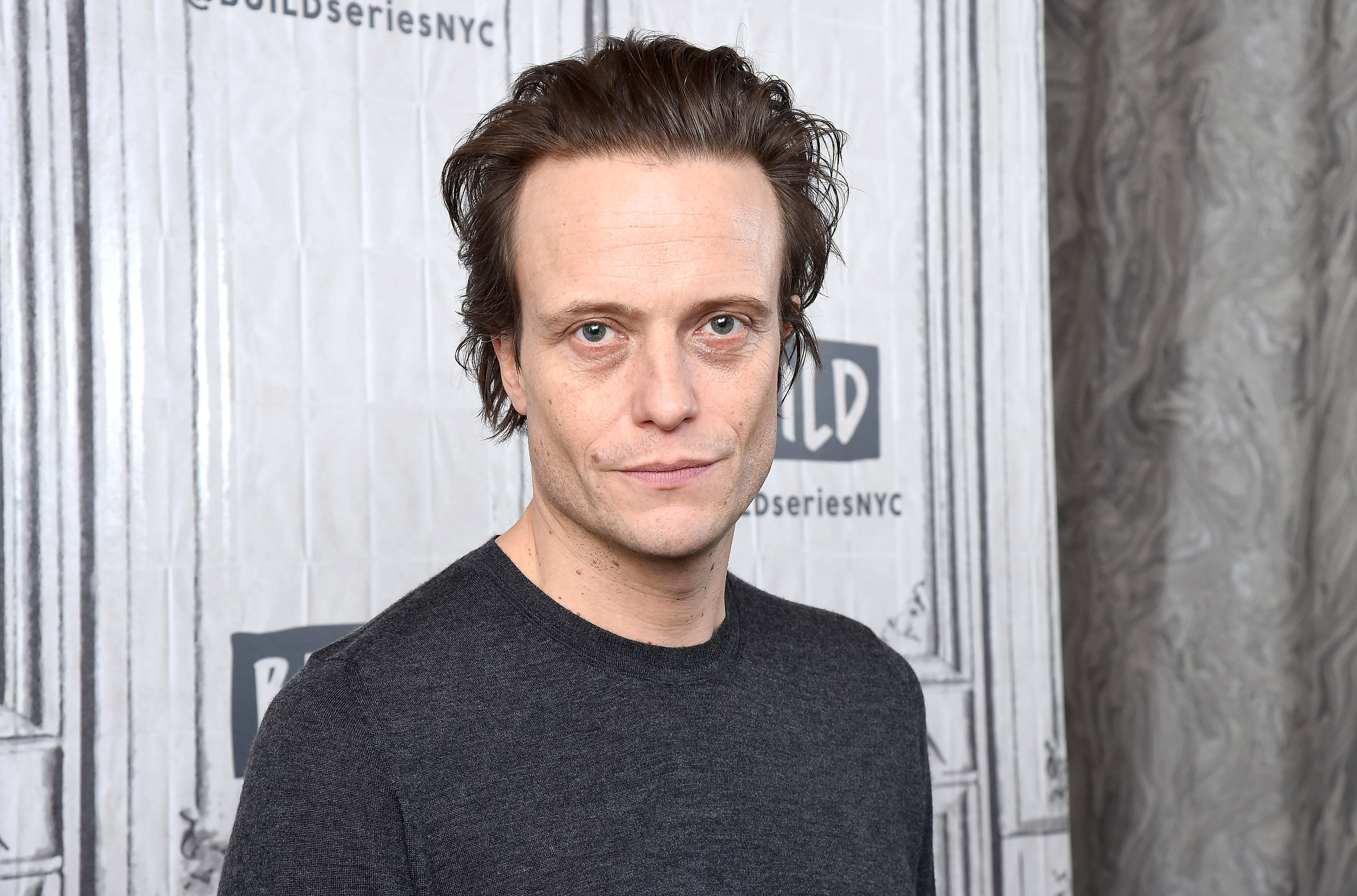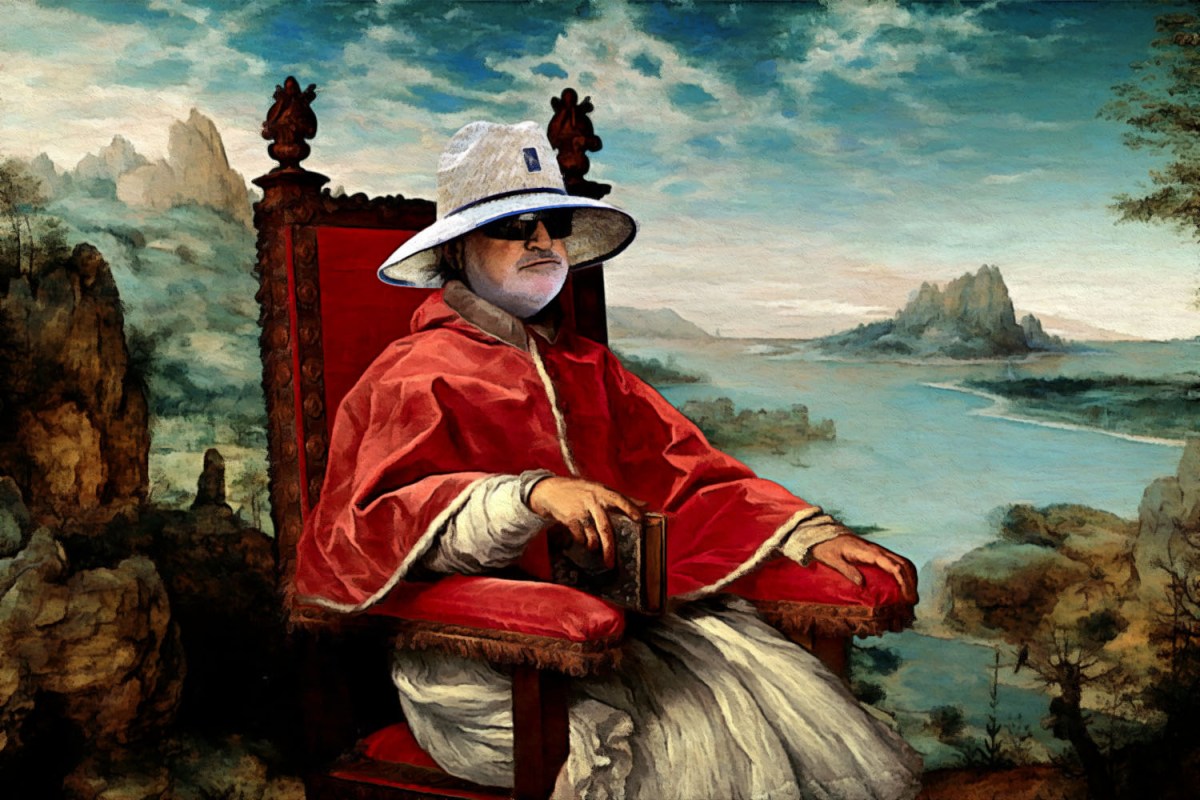Terrence Malick is what’s known in the media biz as a “tough get.” He mostly keeps to himself, works out of his modestly appointed home in Austin instead of New York or Tinseltown, and rarely if ever sits for interviews. The public’s impression of Malick as a reclusive genius owes to his near-uniformly superb films, which have painted a detailed portrait of the man as a devout Christian alternately in thrall of the good Lord’s earthly delights and revolted at mankind’s constant sullying of the same. The rest of our understanding of Malick comes from secondhand accounts with collaborators who can give us a vicarious taste of his methods, philosophies and manner.
[Cool youth pastor voice] Well, kids, let me tell you about another man who performed miracles during his time on our mortal plane, his legacy carried out through accounts related by those closest to him. That’s right — I’m talking about Jesus Christ.
Malick himself would probably blanch at the comparison, and the stars of his latest triumph, A Hidden Life, profess to not being all that observant themselves. But there’s an unmistakable religious air to the way August Diehl and Valerie Pachner describe getting shepherded through this staggeringly demanding production about the life and times of WWII-era conscientious objector Franz Jägerstätter. The actors emphasize that working with Terrence Malick requires trust, which is another way of saying that it requires faith. It’s about getting past your own doubts and accepting guidance in accordance with an imperceptible higher plan. It’s about giving yourself over to a force and counting on its care and benevolence. It’s about the willingness to believe.
That said, those actors also wish to make clear that Malick is, ultimately, just a guy. They both refer to him by the chosen-ones-only nickname of “Terry,” and fondly recall his quickness to laughter. “He doesn’t like the spotlight so much,” Diehl tells InsideHook over brunch in downtown Manhattan, “but he was in a very good mood when we met back up for the premiere in Cannes. His wife was there, so he was all smiles. As long as he’s got his wife with him and he doesn’t have to talk to press, he’s okay.”
So they talk to the media on his behalf as well as their own, spreading the good word far and wide. Actors always speak about their directors in reverential terms, which can have a grim comedy to it when the movie at hand is bad. When the movie at hand is as transcendent as A Hidden Life, however, they start to sound like converts touched by the light. Pachner wasn’t all that familiar with Malick’s works when she got the call to audition, and though she rectified that in short order, she didn’t feel starstruck upon meeting him for the first time. That would change, and quickly, though her reaction erred more on the side of a brush with the divine than intimidation before an A-lister. “His visual style is unlike anything I’ve seen before,” Pachner says, “I’m sure I won’t see it ever again.”
Pachner recalls Malick asking her to cold-read one of the actual letters sent from Franziska Jägerstätter to her husband Franz during his time in prison for refusing to join the Nazi Wehrmacht on Christian grounds, the period that fills out the latter half of the film. Though handling material she’d never seen before initially gave her pause, she learned to embrace this as part of the process. (“Terry likes it when it’s fresh. He doesn’t want you overthinking too much.”) Pachner must have wowed Malick, as he soon paid her a phone call with a simple declaration befitting the omnipotent: “We’re going to find you a husband.” She did chemistry tests with 15 actors, some of them big names she’d prefer not to name, some European stars who still ended up in the movie. The sixteenth scene partner was Diehl, whose appropriately gaunt face and steadfast demeanor came as a saving grace.
Once they’d signed on the dotted line, Malick and his flock embarked on a pilgrimage across six shooting locations in the Alpine province of South Tyrol on the Italian-Austrian border, where the breathtaking natural vistas and humble villages can still pass for the early twentieth century. For a span of eight weeks that the actors say felt like six months, each day began with an hour’s drive up into the mountains and its tucked-away farming communities. Travel days frequently turned into shooting days, as Malick would happen upon a clearing or hillside he particularly liked and instruct Pachner to “Put on your apron, grab a rake, and jump out by the road up here.”
His instructions often involved no more complexity than that: stand there and do this, until it’s time to stop. The film’s early passages, in which the Jägerstätter spouses thresh fields of grass with huge scythes and chase their children around the house in a blissful domestic idyll, were achieved through long takes averaging 28 minutes at a time and topping out at 40. Shooting with natural sun eliminated the need to re-rig lights of their own, and allowed for the spontaneity that Malick’s technique prizes above all else. “We were really just doing farmwork,” Pachner says, having gone through extensive scythe training from locals who’d call cut if the actors didn’t look sufficiently realistic. “You don’t have to worry about preparing a dialogue perfectly and then nailing it. You have to live the moment.”

“There’s a lot of space left for being boring,” Diehl adds. “As an actor, you have the duty to entertain and make things interesting, but his way of filming uses a large percentage of the day on nothing. Sometimes, something comes out of this nothing that could not ever be found with a plan. You reach a point where it’s just boring. And you must think, okay, this is what I’m doing now. Film it if you like. You don’t have to … When you’re given this much room, your performance expands to fill it.”
Pachner nods in understanding at this, having shared in that feeling that what she was doing would not make for compelling cinema, but that Terry ultimately knew best. What she says next comes closest to scraping away the subtext of the sentiment completely: “You need to give yourself over to the moment. You reach a point when you place your trust in Terry, that he will pick the right scenes. You can only do this with absolute faith.”
Diehl traveled a difficult path of his own. Sequential shooting meant that he went from enjoying the company of Pachner to long days of solitude, as Franz gets thrown in solitary confinement to break his indomitable spirit. During these lonely interludes, Diehl found solace and strength only in Malick, his guiding beacon during a trying time. “The physical labor of the farm, I could still feel in my bones,” he says. “I was missing the air and the mountains. There were days without any other actors, and it’s crazy, but having anyone else means support. There was no one to talk with, no fun. It was solemn, but Terry was there. He gifted us a lot, and this was our gift back to him.”
Both actors confirm that they never explicitly discussed God with Malick, and that all big-picture analytical conversations were kept to a minimum. They were his willing instruments, vessels for a vision only he could see. This became especially apparent after shooting wrapped, in a typically protracted post-production during which Malick overhauled his edit again and again. Three years passed, and neither Pachner nor Diehl were permitted to see any finished scenes. “For one-and-a-half years, we were doing voiceover,” Pachner recalls. “We kept getting new pages every few months, we’d go back to the studio, and spend hours recording that he’d use maybe one sentence of. We never really left the movie.”
The movie never really left Pachner, either. “The interesting thing about seeing the finished film was that everything that felt intense to me during shooting was there on the screen,” she says. “Often, when I see a film, I do not feel everything that I felt during the moment. This time, I felt it all.” Both Diehl and Pachner agree that their time spent in the presence of Malick was not just another job, but something closer to a creatively transformative experience. The director leads his actors to heights they never thought possible by sending them challenges that vulcanize the soul and leave the individual stronger than before. In return, they must only resist their impulse to question and submit to the will of a director whose whims may often seem inscrutable. Malick tests his actors, just as he tests his audience, and in either case, we can only see it through in the assurance that someone’s looking out for us. This is what A Hidden Life is all about: through a power outside yourself, finding something inside that you didn’t know had always been waiting there.
“Franziska was an ordinary woman. Franz was an ordinary man,” Pachner says. “They were placed in extraordinary circumstances, but they were people like you or me. We never know what we’re capable of until it’s demanded of us. Their love and faith increased in response to the demands placed on them.”
This article appeared in an InsideHook newsletter. Sign up for free to get more on travel, wellness, style, drinking, and culture.
























